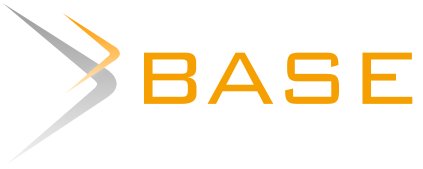Education and Healthcare Reforms in Post-Conflict Setting: Case Studies in Kosovo
DOI:
https://doi.org/10.18034/ajhal.v8i2.613Keywords:
Kosovo, Conflict, Reorganization, Reform, Education, HealthcareAbstract
Kosovo is a small country that was first declared an independent state on 17 February 2008. Albanians make up 90% of the overall population, whereas the Serbs, Turks, Bosnians, and Roma make up to 10% of the total population as the minority group. Before 1999, Kosovo was part of the Yugoslav organization, but after the March –June 1999 conflicts, the North Atlantic Treaty Forces (NATO), thus bringing Kosovo under United Nations administration (Solana, 114-120). Post-conflict recovery is heavy for Kosovo as it entails rebuilding numerous systems' infrastructure for both the healthcare system and education system (Solana, 114-120). The infrastructure and procedures need to be carefully reorganized to curb both communicable and non-communicable diseases to restructure family care and also to better the education provided in Kosovo. The new state is experiencing a slow economic growth rate of less than 4% causing a slow growth rate of both the education and the healthcare system. This rate of economic growth is caused by almost half of the Kosovo people being unemployed and young. The state of the education system in Kosovo has been affected by many different players that have over the years disintegrated the education system and particularly left adverse effects on children and women. According to the PISA international exam for international students OECD exam that was conducted to test the ability of learners to study, Kosovo students became the last three position out of the 73 counties that took the test for math and reading. This shows that the quality of education at these schools is still low. This indicated poor planning in the Kosovo education system for instance the high congestion in schools since due to the overcrowding, students do not get to experience the personalized teaching they require hence both the learners and teachers end up feeling stressed, poor funding for schools in Kosovo, poor working standards and low salaries for teachers. These reforms were to help Albania to reform from the adverse effects of conflict by the Serbians. The aim of these reforms for both healthcare and education was to improve the current unfavorable conditions like lack of equipment as the learners would sit on the floor and write on each other’s backs and hospitals lacked equipment for work.
Downloads
References
Buwa, Dragudi, and Hannu Vuori. (2007). Rebuilding a health care system: war, reconstruction and health care reforms in Kosovo. The European Journal of Public Health, 17(2), 226-230. DOI: https://doi.org/10.1093/eurpub/ckl114
Cardozo, Barbara Lopes, et al. (2000). Mental health, social functioning, and attitudes of Kosovar Albanians following the war in Kosovo. Jama 284(5), 569-577. https://jamanetwork.com/journals/jama/fullarticle/192943 DOI: https://doi.org/10.1001/jama.284.5.569
European Union, pp. 9–9, Progress Report Reform of Teacher Education and Training.
Hossen, M. A., Zahir, E., Ata-E-Rabbi, H. M., Azam, M. A., and Rahman, M. H. (2021). Developing a Mobile Automated Medical Assistant for Hospitals in Bangladesh. 2021 IEEE World AI IoT Congress (AIIoT), 0366-0372, https://doi.org/10.1109/AIIoT52608.2021.9454236 DOI: https://doi.org/10.1109/AIIoT52608.2021.9454236
John, John B., and Antonia Young. (2000). Kosovo. Encyclopædia Britannica, Encyclopædia Britannica, Inc., www.britannica.com/place/Kosovo
Llapi, Gjylbehare. “EDUCATION INTERRUPTED: KOSOVO 1980-1999.” North Dakota State University.
Mustafa, Nehat, et al. (2011). Curriculum Framework for Pre-University Education in the Republic of Kosovo. The Ministry of Education, Science and Technology.
Nietsch, Julia. (2020). The Mother Teresa Society. Volunteer Work for the Kosovo Albanian ‘Parallel Structures’ in the 1990s. Südosteuropa, 68(2), 200-224. https://ideas.repec.org/a/bpj/soeuro/v68y2020i2p200-224n5.html DOI: https://doi.org/10.1515/soeu-2020-0015
Nokhrin, I. M. (2021). ABKHAZ-GEORGIAN ETHNOPOLITICAL CONFLICT AS A COMPLEX CONFLICT AND PROSPECTS FOR ITS SETTLEMENT." Вестник Удмуртского университета. Социология. Политология. Международные отношения, 5(1), 5764. DOI: https://doi.org/10.35634/2587-9030-2021-5-1-57-64
Picciano, Nicasia, and Arolda Elbasani. (2019). UN Shares Blame for Segregated Education in Kosovo. Balkan Insight.
Plesch, Valerie. (2015). A Painful Wait to Bury Kosovo's War Victims. Serbia News | Al Jazeera, Al Jazeera.
Pupovci, Dukagjin. (2013). Building New Realities for Teacher Training in Kosovo.
Ragi, S., Rahman, M. H., Duckworth, J., Kalimuthu, J., Chundi P. and Gadhamshetty, V. (2021). Artificial Intelligence-driven Image Analysis of Bacterial Cells and Biofilms. ACM Transactions on Computational Biology and Bioinformatics, https://doi.org/10.1109/TCBB.2021.3138304 DOI: https://doi.org/10.1109/TCBB.2021.3138304
Ramet, Sabrina P. (2020). Kosovo. World Book Student, World Book, www.worldbookonline.com/student/article?id=ar304560.
Shuey, Dean A., et al. (2003). Planning for health sector reform in post-conflict situations: Kosovo 1999–2000. Health Policy, 63(3), 299-310. DOI: https://doi.org/10.1016/S0168-8510(02)00121-5
Solana, Javier. (1999). NATO's Success in Kosovo. Foreign Affairs, 114-120. DOI: https://doi.org/10.2307/20049537
Steinhubl, Steven R., Evan D. Muse, and Eric J. Topol. (2013). Can mobile health technologies transform health care?. Jama 310(22), 2395-2396. DOI: https://doi.org/10.1001/jama.2013.281078
The Editors of Encyclopaedia Britannica. (2020). Kosovo Conflict. Encyclopædia Britannica, Encyclopædia Britannica, Inc., www.britannica.com/event/Kosovo-conflict
--0--















